How to Live: A Vision Quest, Part Two
 04.22.2011
04.22.2011 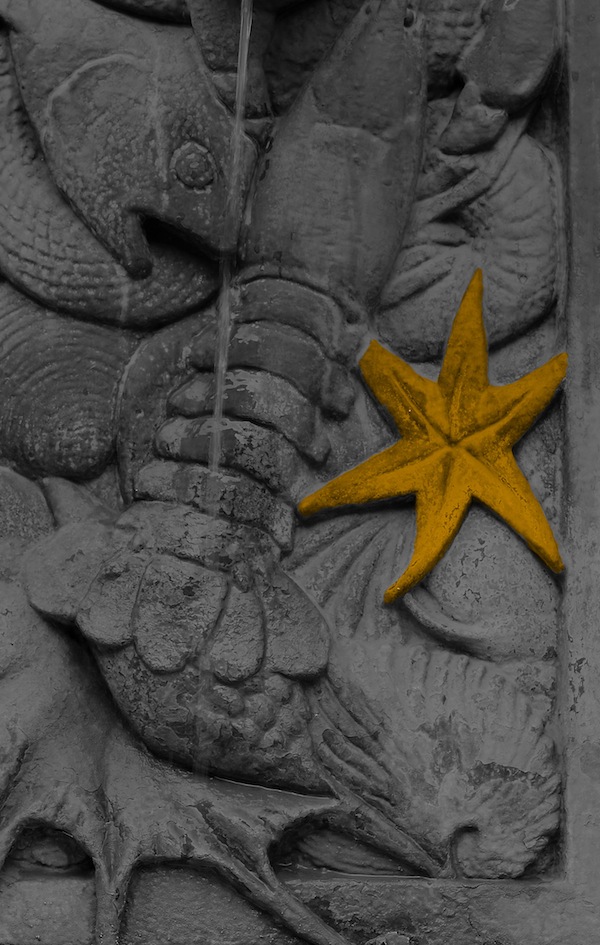
There were twelve voices.
I listened to each, and I named them.
Each had his or her desires and concerns. All were important, but some were more important than others. They took the shape of sea creatures:
Sea horse, Whale, Hermit crab,
Flying fish, Electric eel, Octopus,
Sea turtle, Mermaid, Starfish,
Shark, Dolphin, Swordfish.
I recorded my dialogues with them in my journals for about ten years. By that time, their natures were distinct and I had heard very clearly what each one represented and what each wanted. Each seemed to represent one of the twelve realms of life.
I began to draw a mandala every day, twelve petals around a circle, and colored each petal the color that I felt corresponded to the sea creature.
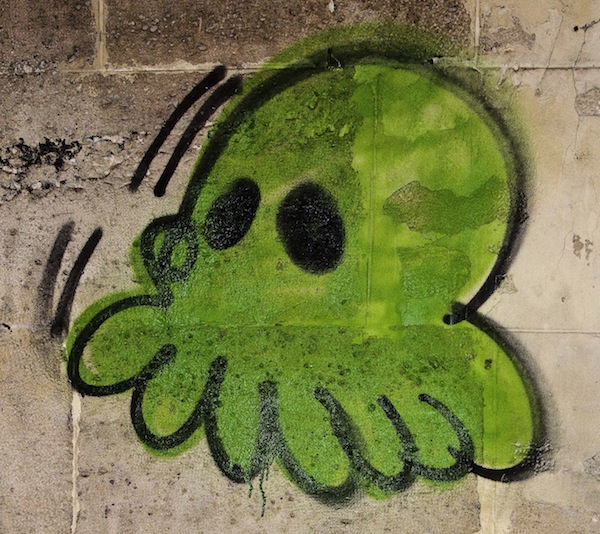
I wasn’t eager to discuss this process with anyone else, not after mentioning it to one boyfriend: “You talk to twelve fish? Maybe you should talk to a shrink.”
This work was eccentric, but I knew it wasn’t crazy. I knew because it was helping me find a sense of harmony and purpose.
After ten years I began to read mythology. All of C. G. Jung, Robert Graves’s The Greek Myths, and Joseph Campbell’s work.
What irony. Campbell had taught at, was still teaching at Sarah Lawrence, the very college I’d dropped out of. But I hadn’t been ready for his work then. If I’d encountered his books ten years earlier, I might have approached myth from the outside, rather than, as I was doing, from the inside, from my own subconscious.
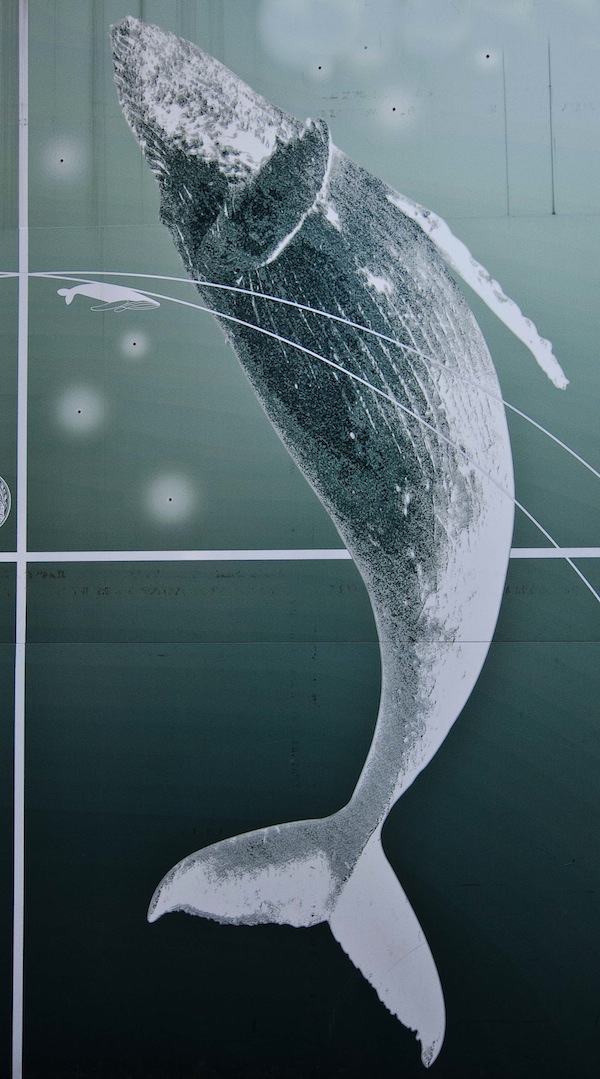
The electrifying thing I discovered was that these twelve inner creatures to whom I’d been talking for ten years, almost perfectly (with some minor variations) corresponded to the twelve gods and goddesses of ancient Greece. The only difference was that the Greeks saw these divinities as outside the human realm (though powerfully interacting with it and affecting it), and the modern variation I was discovering was a vision of them as twelve inner archetypes of the unconscious. (Because in symbolic terms, what else does the realm of water, and sea creatures, mean?)
Now, here in Paris, I still create my daily mandala, listening to the voices of each god and goddess, following their leads, and noting each day what I accomplish in each realm. That other Greek term that intrigued Montaigne, prosoche, means mindfulness, attending to the inner world, and in that way to the outer world as well, since uncontrolled emotion, chaos, warps one’s view of reality. My continuing dialogue with the gods and goddesses, and the creation of a daily mandala, is my method of prosoche.
The major four effects of this vision quest were:
* The sense of the sacred had been restored to me, not in the form of religion, somebody else’s rules, but in an individual vision of meaning. With a sense of the sacredness of daily life, comes imperturbability, freedom from anxiety, what the Stoics, Epicureans and Sceptics called ataraxia.
* I discovered my purpose as a writer: the god Daedalus, the craftsman, was at the center of my personal mandala.
* I felt a growing sense of harmony in daily life. When you are clear about your central purpose, and have control over your emotions, you are free to live in the present, and that brings joy, what the ancient Greeks called eudaimonia.
* My compulsive eating completely disappeared.
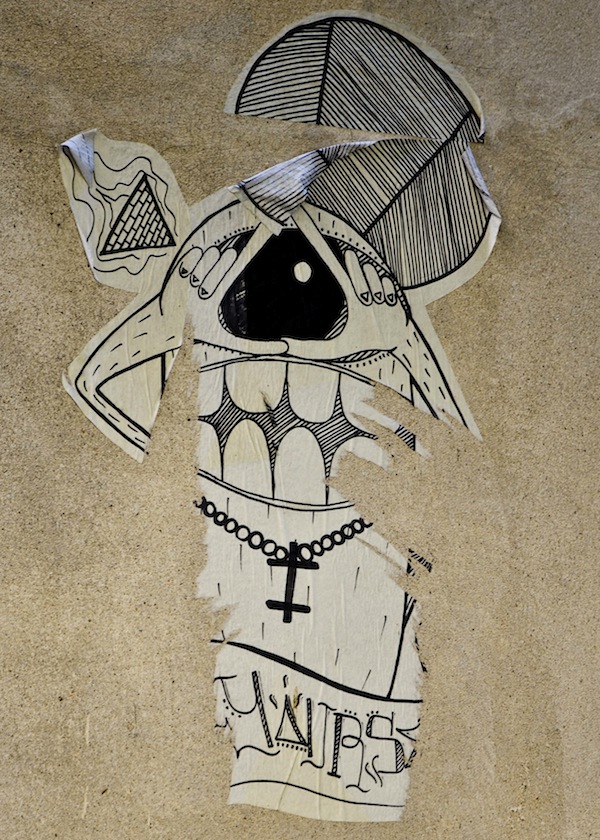
Any compulsive addiction: alcoholism, drug addiction, sex addiction, addiction to eating or not eating, is a sickness of the soul, a symptom of chaos, confusion, lack of clarity at the core. A spiritual symptom. And “symptom” is the key word: you cannot cure the behavior unless you cure the underlying sickness, which is always spiritual.
Okay, Kaaren, what do you mean by “spiritual,” anyway?
I answer, Invisible forces or archetypes or “spirits” inside you. And what is inside you is inside everyone, therefore, all around you. And these spirits are within birds, mammals, fish, plants, the earth itself, even her weather.
After thousands of years of a patriarchal vision that imagines the divine as a Single Dominant Male with a Human-like Visage, we’re returning to the vision of a more balanced force animating the world. Anima mundi, the ancients called it. Animism, as most so-called “primitive” peoples see the world.
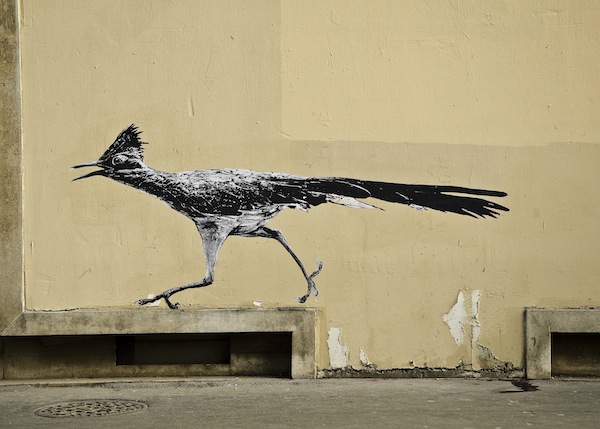
I grew up in the desert of Arizona, galloping around on a donkey among mountains and saguaro and abundant desert creatures, pygmy owls and jackrabbits, roadrunners and rattlesnakes, in a state where Papago, Hopi and Navajo lived.
Many of the kids in my elementary school were Native American. My Navajo friend, Nellie, lived in a hogan, one school bus stop beyond ours in Paradise Valley, before it was as populated as it is now. I encountered kachinas, carved and painted wooden dolls that represented the various spirits the Hopi saw all around them.
That the world was alive with spirits seemed obvious to me. Cat spirits had a particular hold on me. I remember (after our cat gave birth on my stomach in the middle of the night) cradling the newborn kittens and feeling such intense love I was afraid I’d squeeze them to death.
Animism: a world alive, animated everywhere by spirit.
Every spiritual vision leads to a way of treating other people, and of treating the world.
How differently would we choose to treat a world that we see as wholly alive, rather than the world viewed by our late industrial society as dead matter, as “resources” to be plundered?
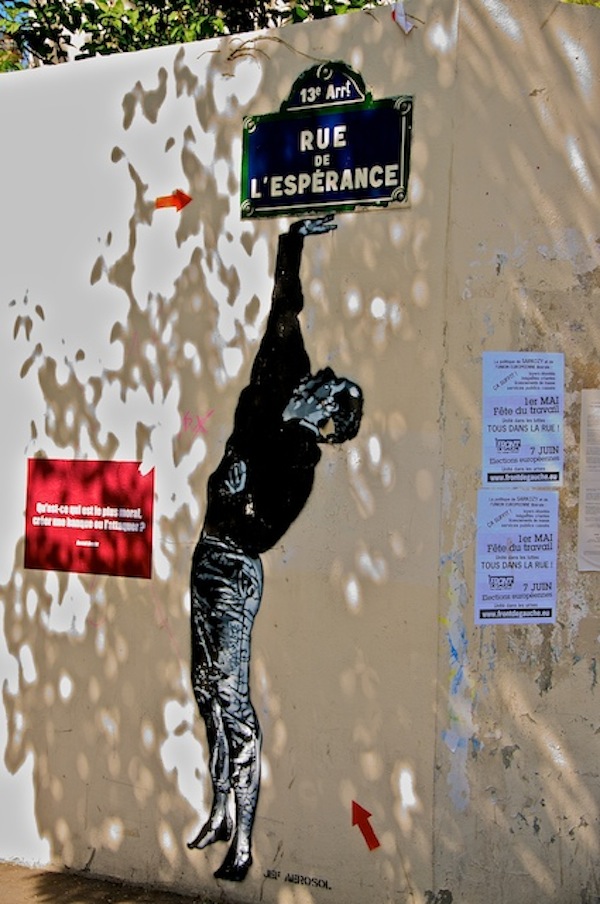
It seems to me that there are really four essential spiritual approaches:
* atheism
* agnosticism
* religion
* individual vision quest
The first two, atheism and agnosticism, were never a possibility for me. The third, religion, was compelling to me as a child, but then I grew up. An effective moral police force for much of the world, it relies on an image of external authority; 3.6 billion people who live under Christianity or Islam subscribe to a monotheistic, dominating male God who passes down laws that we humans, like children with their parents, must obey.
All along, traditional cultures that much of the ‘modernized” world treats condescendingly, like arrogant parents with naïve children, have had an animistic vision that I think may be the only one that can save our planet. Because if we do not return to en-souling all living things, if we continue to behave as if only man is alive (and more deserving than woman, animals, the earth) and as if all else is dead, we will realize that vision across the planet, the natural systems that support the planet will die, and we will, too.
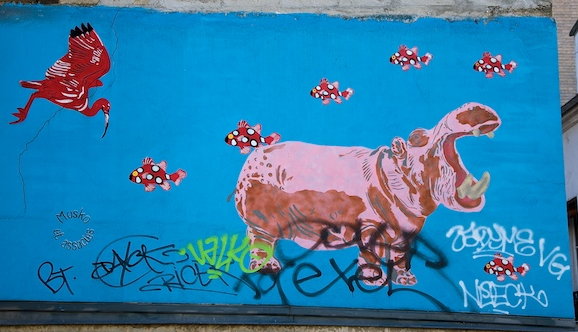


Reader Comments (10)
Kaaren:
I can imagine it took great courage to write this vision. Somehow creating one's own cosmology, gleaned from diary writing and listening to our dreams and intuitions, is considered taboo. It's OK for self-proclaimed religious leaders, but not for each of us, to find gods and goddesses speaking through us and all around us.. Tyranny of the soul is still considered sane, but democracy in the spiritual realm...not so quick,woman. The repressive boyfriend's comment reveals how quickly such visions are called crazy...witness the great visionary Blake. Keep speaking, Spirit. I'm enthralled. Not to be a follower of your imagery, but to emulate your courage to speak from within in your own language with your own imagery and your own wisdom.
--Tristine
Dear, dear Tristine,
How intuitive, how insightful you are. Yes, this took courage. After we posted it, I worried that friends who have monotheistic religious beliefs, or are atheists, would cut off their friendship with us. Yet I love--Richard loves---a lively dialogue on any subject whatsoever.
You are right that this is a poetic spiritual vision, and I think properly belongs in an epic poem, which I envision writing. The poets who invented cosmological visions wrote epic poems: Dante and Blake especially. (NOT that I'm comparing myself to them, just that this is the place for that kind of "seeing.")
I am drawn to the Native American tradition of individual vision quest that then becomes communal: single individuals go off into wilderness, fast and pray, and wait for a vision, then bring the story or song back to the tribe. That's what appeals to me: all of us following our own quest, then sharing it with our community as artists and activists. A democratic spirituality, without hierarchy, without following any one person's vision.
I'm grateful for the "repressive" boyfriend's judgment--it taught me that I needed a mate who was more introspective, one who'd done a vision quest of his own, and that led me to Richard. His response to my spiritual vision was just the opposite. He immediately understood and suggested I teach it. We did for a while, but I think folding it into a long poem does better justice to the vision. It can't really be approached in any other language than poetry.
I think you are a wise woman, Tristine. And I'm grateful for your subtle understanding.
Love,
Kaaren (& Richard)
It’s controversial and worthy of
never ending argument
God wears a bow tie and tends
divine bar in heaven
God leans down from a cloud and from
time to time points with his
forefinger
God is perpendicular to all that is
horizontal
God rides such a fast chopper we
can’t see Him streak by
God’s a long-bearded farmer in
Upper State running a wingéd horse farm
God spoke to a chosen few and from then on
has kept mostly silent
God’s a giant eyeball in
space somewhere Who sees us even
electron-microscopically
I’m even running into trouble with Him
right now writing all these
patently absurd examples
An absence Who’s a Presence
a Presence Who’s an absence
A something who’s never a Nothing
A No thing Who’s really something
Giant Technicolor alligator snapping its jaws
Solar eclipse that burns us all down
to a crisp
The list could be endless of all the
pins we set up at the
end of the lane to knock down
A smoky yellow-eyed panther lurking behind the
illusion of matter
A Friend a Foe
A smiling porpoise
A bridge to Nowhere
Nowhere itself
Sitting here with my mind finally
drawing a blank
I sit imperfectly still
I could be inside a tunnel at the
break of day
All whiteness can’t exhaust the
inexhaustible whiteness I feel
Sitting up straight with my
eyes closed
I hear my dead parents
calling across the hedge
All the dead pets I thought were
mine wag tails softly purr cheep and stare with those
unlidded eyes of gold fish
Forgive us Indescribable One and
continue to put our
huge tasks before us
The day’s never done without our
sweet service unfinished
extending beyond its darkness
__________________________________
2/17/10 (from In Constant Incandescence, The Ecstatic Exchange, 2011)
Kaaren:
What a soulful word journey from the creative evolution of one writer's spirit, to the world we live in and what "it" (or "she") craves. How open you must have been to channel the collective consciousness and design your own living myths and mandalas. I love your spiritual practice and how it colors your life and stabilizes you.
You ask for comments on religious persuasion and it is Good Friday. I want to stand up for Christianity in its pure form of trying to follow the bits of wisdom found in the Bible. The desert fathers, the poetry of the Psalms, the long history of people inspired and comforted by songs of the spirit. I'm not a religious Christian, but I am inspired by Jesus and the Christian God, though she's gender nonspecific in my book. I like to separate organized religion from true religion, not that I'm saying you needed to address that. But it is Easter and resurrection seems to me like a beautiful thing to celebrate.
--Diane
Dear Diane,
What relief I felt on reading your words. I HOPED someone would speak up for his or her own religious belief. After sending out this post, I realized it's Good Friday and Easter Sunday and I felt that the post was badly timed. YET it's also Earth Day today, and monotheistic religions don't seem to be doing a very good job of protecting our planet. I like the distinction you make between a "religious Christian" and "true religion." Yes, there is much wisdom in the Bible, in all the sacred books, and Christ was a true prophet. And the archetype of sacrifice, death and resurrection exists in every religion or spiritual vision. Dionysus has that in common with Christ. So we're always in the realm of myth when we approach the divine. In mentioning the poetry of the Psalms and the songs of the spirit, you are speaking of an artistic approach to spirituality, the songs and poems that all of us can bring to our "tribe." I think I'm only objecting to the notion that these spiritual gifts/offerings exist only within organized religion. I'm objecting to the hierarchical approach to spirituality that leaves out a more democratic vision of so much that is sacred.
About openness: my great difficulty earlier in life was being too open, being too flooded by impressions of others' inner lives, and being so curious about everything around me that I found it hard to focus. This vision quest was in part my way of creating an alembic of focus.
Thank you so much, Diane, for your generous response.
And joyful Easter! Rebirth? Always a good idea.
Love,
Kaaren (& Richard)
Kaaren:
I love your pantheon of sea creatures. When you were at Berkeley did you study under Hubert Dreyfus? When he talks about the Greek Gods, he refers to them as Moods. When I heard him describe them that way, it was clear to me how those gods are as if separate--essential and root level-- forces acting upon us in turns. I've been searching for the magical answer about how to harmonize those forces in me. So I found your idea of conversing with that pantheon a fascinating solution. I wish you well with it and I am glad it's revealed so much to you. Thank you for so beautifully stringing your story.
--Laura
Dear Laura,
Thank you!! You use exactly the right words: it is a pantheon of sea creatures, as well as a pantheon of spirits, or gods. And "stringing your story" is a felicitous phrase that mirrors the term I've used for the result of this vision quest: "a string theory of the soul." I think what I was doing was trying to find the pattern of the soul, and it turned out to echo the pattern that the Greeks discovered in their pantheon of gods and goddesses.
I didn't study with Hubert Dreyfus. Did you? I don't think "moods" is a comprehensive enough term; I'd use "realms," instead. I sifted and studied and mused for years on these energies and found that all human activity falls within one of the twelve. They certainly have their more characteristic "moods" (Dionysus is often stormy, but then he is also tremendous stillness and depth; and Athena is cooler-headed, as Ares is a hot-head, always ready for war, or simply action, movement. And so forth.) But it's their realms that essentially distinguish them.
You are absolutely right that "those gods are as if separate--essential and root level--forces acting upon us in turns." That's it exactly. Both essential and root level and acting upon us in turns. I think the process I went through, chaos, listening, separating out the forces or voices, naming them, understanding what each wanted, creating daily rituals that give each one full attention--all that is close to what the ancients called alchemy. The metaphor there is changing lead to gold. That's what a vision quest is: taking all the abandoned, lost, unharmonious parts of ourselves--the lead--and turning them into gold.
I'm so glad that you and I have become new friends. Stuart, the alchemist, is responsible for that!
Love,
Kaaren
This poem is so full of original images, unexpected visions of divinity:
"...God rides such a fast chopper we
can’t see Him streak by"
"...God’s a long-bearded farmer in
Upper State running a wingéd horse farm"
...A smoky yellow-eyed panther lurking behind the
illusion of matter"
What a great way to place God: "in Upper State." And winged horses--source of all inspiration!
And these lines are touching:
"I hear my dead parents
calling across the hedge
All the dead pets I thought were
mine wag tails softly purr cheep and stare with those"
You have images of God in every (male) guise, and as animal, machine, mystery, everything but female! Where is the female divinity?
The ending is, I think, the essence of spirtuality, daily service:
"Forgive us Indescribable One and
continue to put our
huge tasks before us
The day’s never done without our
sweet service unfinished
extending beyond its darkness"
Thank you for posting this, oh incandescent poet!
Love,
Kaaren (and Richard)
Dear Kaaren-Quest (and all of us too!):
I read through my poem and you're partly right, though the bartender God might be a woman, even with a bow tie!
A few others are a bit ambiguous, but no specific female reference... You see, in Arabic the pronoun Hu (usually "he") in reference to God is known as the pronoun of absence, not meaning non-existent, but a pronoun that is special to the Deity, Who is really genderless as Deity. The great shaykh and saint, Ibn Arabi, says that God (or gods too for that matter) to Whom we may devote ourselves, and worship, is not the Creator of all the universes, galaxies, down to the minutest beings, Whose essence and dimensions are truly way beyond human conception, but in the original cases of all the revealed "religions" including Buddhism actually, an enlightened and inspired being brought a conception humanly comprehensible that leads to that awesome perception (if you allow for a Creator, that is... and not a mechanical happy "accident" of nature).
So I don't think of God as male (or female) although truly these western revelations (including Islam) have taken root in generally patriarchal societies, and the animist societies (I lived for a year in Nigeria, among animist-Catholic Ibos) are even more ruthless toward their women than any Western religion. Some customs felt like when we were boys with forts and clubs, and the girls were forbidden to enter.
It would be good to know, however, that in Islam as it originated, women had a major role, including the pattern of the Hajj in Mecca, which is based on the experience of Hajar (or Hagar) as she tried to find water for Ismael (or Isaaq, some scholars say, and it isn't completely clear), running back and forth in the desert heat until the angel Gabriel kicked in the sand and a fount spurted out of clear water that still runs clear today for the millions of pilgrims that come there.
The modern perception (and too often the practice) of Islam, which also very much emphasized the care of the earth and its creatures, is very skewed and presents, in a PR sense, a very distorted face, alas.
What a brave thing to be in Paris and bring out all these thoughts from your avid readers! Thank you actually for your own Way (again I think of the epic poems written by Dante and Milton, not quite animists... and Blake was I think a Sufi at heart...) and its sweet workings-out in personal terms... leading up its own rungs to the Light.
--Daniel
Kaaren, here. Given the length and richness of each person's comments, lately, I'm going to try an experiment here where I respond to your comments in italics within the message.
Dear Kaaren-Quest (and all of us too!):
I read through my poem and you're partly right, though the bartender God might be a woman, even with a bow tie!
Kaaren-Quest? That is funny. Since you wrote the poem, Daniel, you know if that bartender is male or female, right?
A few others are a bit ambiguous, but no specific female reference... You see, in Arabic the pronoun Hu (usually "he") in reference to God
Do you sometimes wonder if language is at the root of certain cultures and religions favoring the male over the female? If, for instance, Hu, were usually translated as “she,” would a religion have evolved out of that conception that gave women equal power (at least) to men?
is known as the pronoun of absence, not meaning non-existent, but a pronoun that is special to the Deity, Who is really genderless as Deity. The great shaykh and saint, Ibn Arabi, says that God (or gods too for that matter) to Whom we may devote ourselves, and worship, is not the Creator of all the universes, galaxies, down to the minutest beings, Whose essence and dimensions are truly way beyond human conception, but in the original cases of all the revealed "religions" including Buddhism actually, an enlightened and inspired being brought a conception humanly comprehensible that leads to that awesome perception (if you allow for a Creator, that is... and not a mechanical happy "accident" of nature).
This is a grand conception that somehow makes me think of images of the constellations and the Milky Way, the vast space beyond the stage of planet Earth where we humans live out our lives. It also brings to mind the vast cycles of time that, say, the Hindus envision.
So I don't think of God as male (or female) although truly these western revelations (including Islam) have taken root in generally patriarchal societies, and the animist societies (I lived for a year in Nigeria, among animist-Catholic Ibos) are even more ruthless toward their women than any Western relgion. Some customs felt like when we were boys with forts and clubs, and the girls were forbidden to enter.
I didn’t know that you lived in Nigeria among the Ibos, Daniel. That’s fascinating. When was that?
Yes, there are animist societies that are ruthless toward women. But I wasn’t suggesting that we return to an earlier form of animism. Since writing the last post, I’m wondering if the stages are:
1. Animism (polytheism: many gods)
2. Religion (monotheism: one god)
3. Agnosticism (doubt; the beginning of movement away from external spiritual authority towards individual authority; increasing rationalism; the rise of Protestantism in Europe)
4. Atheism (absolute denial of an external spiritual authority; increasing materialism; the rise of industrial society in the West)
5. Return to a renewed form of animism: (now spiritual authority lies within the individual, in his or her inner life, and the task is to find the particular gift of the spirit to bring back to the tribe.)
I’m thinking of what Nietzsche announced in his philosophy: the death of God (monotheism) the birth of the gods (return to polytheism).
And there must be an overlap with Spengler’s notion that each culture moves through spring, summer, fall and winter stages, then returns again to a spring vision, in this case, of all nature being seen again as full of spirit or soul.
It would be good to know, however, that in Islam as it originated, women had a major role, including the pattern of the Hajj in Mecca, which is based on the experience of Hajar (or Hagar) as she tried to find water for Ismael (or Isaaq, some scholars say, and it isn't completely clear), running back and forth in the desert heat until the angel Gabriel kicked in the sand and a fount spurted out of clear water that still runs clear today for the millions of pilgrims that come there.
I’m intrigued by this mention of Hajar or Hagar. I think all religions are archetypal and related to each other. In moving through my own vision quest, then studying myth, it became apparent that these twelve sea creatures, or gods and goddesses, or archetypes, also correspond to the twelve signs of the zodiac. The vision of twelve zodiacal signs arose long ago, independently, all over the globe, with certain differences but mostly similarities. They were once evidence that we linked the physical world with the spiritual world in our imaginations.
What the Cretans called Daedalus, the craftsman, was, I believe, in still more ancient times, Hebe, the water bearer as a girl, or Hera, as a woman. (Before she was co-opted by the patriarchal Zeus, who married her in order to claim her inspiration as issuing from himself.) This corresponded to a time when the waters of inspiration or the Muse were pictured as female. Hagar, I imagine, is related to this archetype, the angelic gift of bringing water, or inspiration. She is also related to the Star in the Tarot, and Aquarius in the zodiac.
The modern perception (and too often the practice) of Islam, which also very much emphasized the care of the earth and its creatures, is very skewed and presents, in a PR sense, a very distorted face, alas.
The main problem I see in most patriarchal religions is that if you favor “male values” over female, you automatically de-value the planet. She has been pictured as a female since ancient times. And we are all aware of where that has led us. Monotheistic religions, no matter what their original attitude towards nature is, have not done a good job of caring for our planet and the creatures that live on her. Undervaluing the feminine doesn’t just mean not giving women equal pay for equal work, or the same opportunities outside the domestic sphere. Its worst effect is the way we treat all living things.
What a brave thing to be in Paris and bring out all these thoughts from your avid readers! Thank you actually for your own Way (again I think of the epic poems written by Dante and Milton, not quite animists... and Blake was I think a Sufi at heart...) and its sweet workings-out in personal terms... leading up its own rungs to the Light.
Daniel, thank you so much! I’m so glad to hear the Muslim perspective from an ecstatic Sufi poet. I’m grateful to you for your open mind and inquiring heart. Dante and Blake I read, but Milton? No. Maybe it’s time.
Love,
Kaaren & Richard
Kaaren:
I think Dreyfus also emphasized that the acts of these god are something more profound than an impulse or a whim. I suppose Mood was the word for something more profound than emotion, and he tried to stress the grandness of it. But your idea of realm is even more far-reaching. That you have found twelve essential forces or realms relating to the divided ways we might act in the world, is remarkable. It would be a great introspective exercise to learn about your twelve ocean "gods". I wonder if I can find resonance there. I wonder how the pantheon came to you in the first place. Did it arrive as a sudden awareness of multiplicity?
Such a thoughtful post from you. My path of discovery was fueled by the desire to save my own life. It seemed personal at the time, but now, in hindsight, I see it was going on all around me in people of my generation. I think the western world, American culture at least, reached a kind of fulfillment of the materialist, individualistic, atheistic dream in the ‘50s, and those of us who came of age in the ‘60s wanted a return to a more spiritual and communal way of living. Why was there such admiration for Native American culture during the ‘60s? I think because of the combination of individual contributions to the culture with communal cooperation. You went off on a vision quest to find your story or poem or song or drawing or political or practical vision, then returned to share it with your tribe.
When I first considered Joseph Campbell's remark that when one's inner world and one's outer world are too dissimilar, the person will experience a "crack-up", I realized that such a thing might be happening to me. I had seen life in such a rational way, and I was Atheist. I adored science as the one and only truth finding strategy. The shattering happened because I'd just given birth to my first daughter, and my mom had cancer, and I couldn't be denying my emotions anymore.
Laura, this is just what happened to me in my first year of college. “Crack up” is one phrase to describe it. For me it felt like jumping off the train, off the tracks of what my culture expected of me. College, marriage, children… then what? I instinctively felt I’d better find a vision for “then what” or my identity would be swallowed up by domestic life.
I’m intrigued by your coming to your own vision quest from a rational, scientific, atheistic perspective. It’s much easier for types like me, intuitive-feeling in Jungian terminology, to approach a vision quest. For thinking-sensory types (most scientists), it often takes some huge life event of the sort you describe: giving birth and experiencing the life-threatening illness of your mother.
Suddenly after the shattering of the dome of my rational worldview, the world was filled with symbols and the "Moods" of the gods. I was discovering the emotions which I had always brushed off as annoying and irrelevant to truth. I called this new realm "irrational" and I meant it in the best sense of the word. I recognized irrationality as the source of my creativity, and I learned to be closer to its edge.
This is hilarious to me, emotions as “annoying and irrelevant to truth.”For me it was the opposite: emotions were so huge that I needed to evolve a detached vision to be able to get some control over them. Irrational and rational: both equally important, I think. Irrationality is the source of creativity, you’re right, but without rational discipline and ordering of the fragments, you have no way to give the gift that comes to you through your irrational subconscious.
I considered irrationality to be the source of all knowledge, like the Egg, and I considered the more structured knowledge to be something fully processed, like the Chicken. After that, I was obsessed to figure out what things in my world are rational, and what are irrational. I explored everything I could see to answer this. Some of my wiser friends told me that you cannot divide experience so sharply in two: rational and irrational. And yet for me, then and now, I find this metaphor deeply revealing of truths.
I think of irrationality as the “soul,” and rationality as “the mind.” And as Jung wrote, and the ancients before him believed, these are just two of the four elements of our nature and all nature: soul (water); mind (air); sensory or body (earth); and heart (fire).
During that time in the irrational realm, I had a realization something like yours, that we all have some kind of animal or force of nature within us: at least, that worked for me as a metaphor to answer questions about myself and others. I didn't know what mine was then.
Still, about 8 years after my discovery of the irrational, I found myself experiencing a third force. This force appeared in answer to my question about some idea I was experiencing at the moment (I've forgotten the question). I was asking if the idea was irrational or rational, and the answer didn't come. Instead, I had a feeling of light: something strikingly different in behavior from rationality or irrationality. The light was piercing both the rational and irrational, not so much as an overlap or a mixing but in a transcending way, just as light can penetrate a leaf or a stained glass window without altering the structure there. I recognized the sensation as light rather than rationality or irrationality.
C. G. Jung describes this experience of yours in his book on Typology. In working with his psychiatric patients, he evolved the theory that we all come into life with one of the four functions most evolved, with a second one being auxiliary. These four functions are intuition, thinking, sensation and feeling. With effort, by your 30s, you might begin developing the third function. But the fourth one, which you develop last and only with much conscious effort, is the DOOR to the divine. The place from which ecstasy comes.
Example: I began life with intuition most developed, then feeling, and then began developing the third function, thinking. Developing my fourth function, sensation (I think that’s a clumsy translation from the German, which, in English, ought to be “the sensory”) took the longest. That for me might mean exercising regularly, eating healthily, paying attention to the sensory details of life around me. And sure enough, that’s where my ecstasy comes from.
The experience led me to a literal exploration of light. I picked up my camera and began to explore with it. And that was my entry to the spiritual world. It hasn't even been a year since that discovery. But the feeling of moving forward rapidly is profound.
Since you began as a scientist, your first function is probably thinking. Your second would be either intuition or the sensory. Your fourth would be feeling. And you use the sensory, taking photographs, to capture feeling, the place from which the ecstatic comes for you.
So for me, there are three realms: rational, irrational, and spiritual. How might these relate to your pantheon, Kaaren?
I see the four realms as each having three gods or goddesses or spirits:
The soul gods are: Poseidon, Dionysus and Artemis.
The mental gods are: Hermes, Daedalus or Hera, and Athena.
The physical gods are Hestia, Aphrodite and Demeter.
The heart gods are: Ares, Apollo and Zeus.
Each of the three in each quaternity emphasizes either the practical, or the aesthetic or the spiritual dimension of soul, mind, body and heart.
And how does the symbol of the door play into your vision quest?
Love, Laura
I would guess that each of us has a different door. Your door into the divine is feeling. Mine is the sensory.
Love,
Kaaren & Richard
How lovely that everyone here has tried to put his or her spiritual journey into a post! SUCH a desire to communicate! And as usual, my dear Kaaren, you're the fulcrum.
Oh, Anna, How grateful I am that you are speaking up for the Christian vision. I dreaded offending anyone I love who believes in a Christian or Muslim or other single god.
I'm always baffled by those who call Jesus a great prophet. In my readings, he seems impossibly difficult — and kind only to those who least expected kindness.
This is baffling to me! I think Jesus's great gift to western culture was exactly that, kindness. He was the quintessential antidote to a Roman culture of cruelty. Though many barbaric wars and murders were committed through the centuries in the name of Christian belief, Christ himself taught kindness, and I think had a predominantly softening and civilizing effect on the western world.
So I’m interested in hearing from you a few examples of his being impossibly difficult.
But, because I believe he's God, I'm a Christian by default. It's taken me nearly 30 years to even sorta kinda understand what he's talking about. I love that he turns everything (including me) on its head: from my half-assed concepts of forgiveness and grace to the fact that he sacrificed himself for ME, instead of the other way around. You just gotta love a God like that.
I love the personal nature of your relationship to Christ, and, clearly, how much thoughtful musing you’ve done on his teachings.
The rest -- the image you have of a patriarchal god -- I understand. And am not offended. All I can say is that the God I worship is not about rules...in fact, just the opposite. But in Jesus' day, MOST religious people were following rules instead of the Creator. Nothing has changed.
Maybe instead of emphasizing “rules,” I should have emphasized the shift that happened within me and within many others, from looking for spiritual authority in the teachings of another, to looking for author-ity within one’s own spiritual depths. To me that is the end result of the shift from Catholicism to Protestantism to skepticism (what Montaigne, a Catholic, was leaning towards during the Renaissance) to atheism (our modern industrial materialist world view). When the latest stage of that spiritual “evolution” shows itself to be bankrupt, there has to be a turning back towards the spiritual roots of life, whether in an established religion or within one's own spiritual vision.
As someone posted above, animists destroy their environment. They're unkind to women. So are Christians and Jews, Muslims and Buddhists and Sufis and Hindus and atheists. The only true change is always within, regardless of what we call ourselves.
You are correct, as is Daniel.
What I love about you and Richard is that you're laying it all out there -- trying to live in a way that can be an inspiration to others. That's all I can ever ask of anyone.
Thank you for saying this, Anna. I don’t know why I am suddenly compelled to tell personal stories about things I never before voiced in public, but that’s what’s happening. Each time I do this I’m afraid of losing friends, losing the connection with people I love, and yet strangely enough, the opposite seems to happen. I would never have known the subtlety and complexity of your and Daniel’s, Stuart's, Laura’s, Tristine’s, Diane’s and so many other friends’ spiritual visions unless you and others had told me. And I guess expressing it oneself is an invitation for others to do the same. That is what Richard and I most wanted: a forum for complex and illuminating dialogue, and stories and poems and images from the creative minds and lives of people we love, our tribe!
Dear Kaaren:
Kaaren, you are so right on in your "vision." I was deeply moved by your mandala "process" of navigating your way through the mundane and the "compulsive" to find your own sense of harmony.
Richard, your octopus, whale, Guernica-like roaring mouth, the man holding up the street and your hippo work in perfect counterpoint to Kaaren's prose and literary imagery.
This whole idea of regulating emotions is so essential to me now as a writer. I know that as a young man I felt I more like Attila the Hun than the artist filmmaker that I aspired to be. It was about the rush of art, sex, alcohol, drugs, fame and power - now not so much. To create work that is "original" in the sense that it has originated from "inside" there needs to be a quiet confident sense of self.
Just last week, Margaret ("Peggy") Flinsch my mentor and teacher died at the age of 103. She was the last living student of G. I. Gurdjieff. She studied with him at his Institute for the Harmonious Development of Man, at the Prieuré in Fontainebleau-en-Avon, France. Peggy was a force in my life from the age of about eight to eighteen. I was among thousands of other people she touched with her spirit. I mention her because she embodied so many of the principles that you have discussed in Vision Quest Part Two. Your Quest awakens me the same way as Peggy and her teachings did so many years ago.
as always with affection and love,
Jon
Jon,
We feel honored by your loving words of appreciation.
I'm laughing at your comparing yourself to Attila the Hun. I don't think I knew you at that stage of your life. It's funny, isn't it, how cliches about artists endure: that being out of control produces the best art. Whereas it's hard to even focus on art when your emotions are running you ragged.
I wish I'd met Peggy Flinsch. I didn't realize you'd been so immersed in the teachings of Gurdjieff. I read his writings, and many of the people I knew in Berkeley studied with Nyland (not sure of spelling), one of his disciples. I was never a student of Gurdjieff, but I heard enough of his teachings to recognize the wisdom in much of it. I think Oscar Ichazo's Enneagram was related to discoveries Gurdjieff made. You'd probably know. But I salute Peggy's spirit, and I'm sure that what you picked up from her infuses your fiction and your films.
Jon, I so love your generosity. Thank you.
Love,
Kaaren & Richard